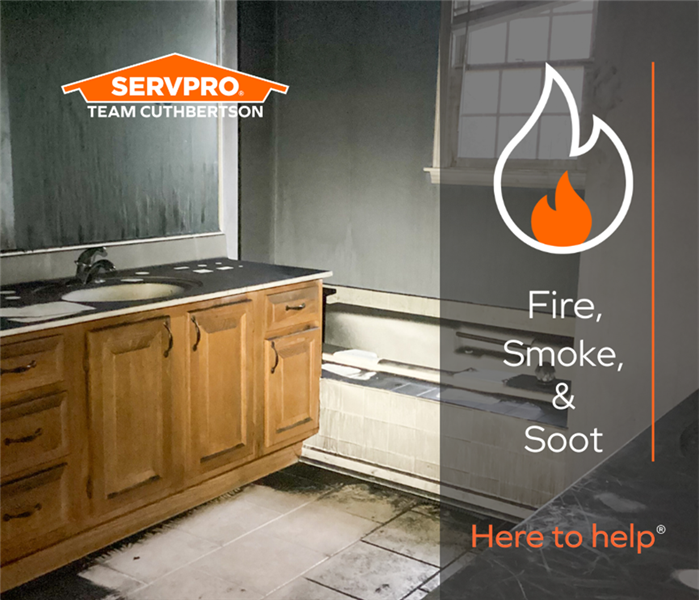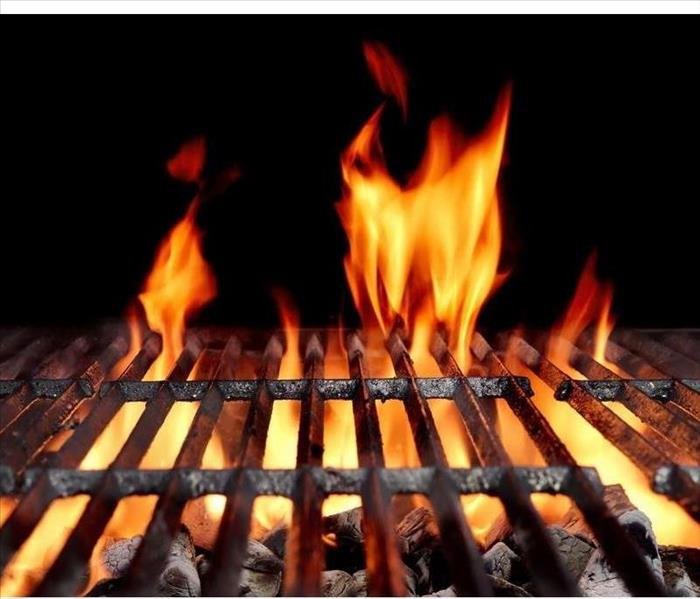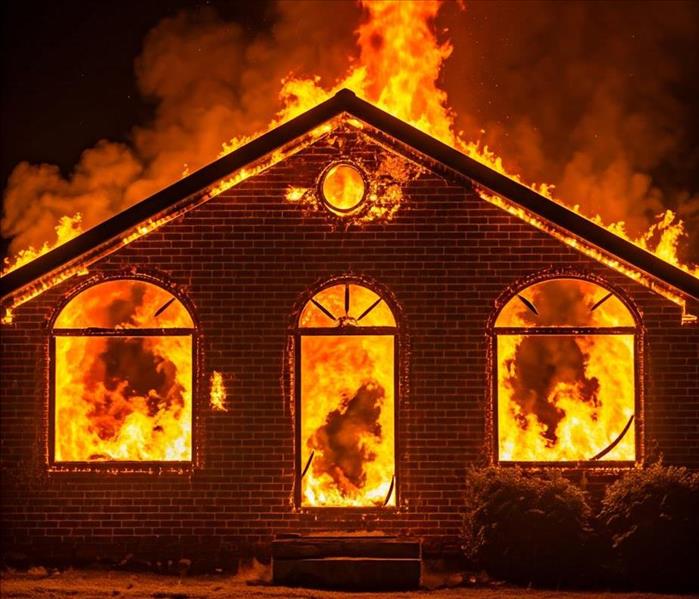How to Avoid Fire Damage to Your Home During Dry Seasons
1/20/2025 (Permalink)
Dry seasons can be a dangerous time for home fires. The combination of dry weather, strong winds, and low humidity can create the perfect conditions for wildfires to spread quickly. In addition, many people use fireplaces and other heating sources more often during the dry season, which can also increase the risk of fire.
There are a number of things you can do to protect your home from fire damage during the dry season.
Here are some tips:
- Create a defensible space around your home. This means removing any flammable materials, such as leaves, branches, and mulch, from within 30 feet of your home.
- Keep your gutters clean. Clogged gutters can collect leaves and other debris, which can increase the risk of fire.
- Trim trees and shrubs near your home. This will help to reduce the risk of fire spreading to your home.
- Use caution when using fire in or around your home. This includes being careful when using fireplaces, campfires, and grills.
- Install and maintain smoke detectors and carbon monoxide detectors. These devices can help you to evacuate your home safely in the event of a fire.
- Have a fire escape plan. This will help you and your family to get out of your home safely in the event of a fire.
- Consider installing a sprinkler system. Sprinkler systems can help to extinguish fires quickly, which can reduce the amount of damage to your home.
- Be aware of fire restrictions. During the dry season, there may be restrictions on outdoor burning. Be sure to check with your local fire department before burning anything outdoors.
By following these tips, you can help to protect your home from fire damage during the dry season.
Additional tips:
- Sign up for a fire safety course. This will teach you how to prevent fires and how to escape from a fire safely.
- Install a home security system. This can help to deter burglars, who may be more likely to target homes during the dry season.
- Keep your home well-maintained. This includes repairing any leaks or other damage to your home.
- Be prepared to evacuate. If a fire threatens your home, be prepared to evacuate safely.
By following these tips, you can help to keep your home safe during the dry season.
Not just Fire; Smoke and Soot too.
2/11/2024 (Permalink)
 Smoke and soot can travel far distances and infiltrate even the tiniest cracks and crevices.
Smoke and soot can travel far distances and infiltrate even the tiniest cracks and crevices.
When a fire occurs, the consequences can be catastrophic. While some areas and belongings may be directly impacted by the fire, there are other items that may not have been in the vicitity of the flames, and reamaind unscorched. However, smoke and soot have the ability to travel and infiltrate different surfaces and objects within a building, impacting not only the room but also the items in them, sometimes even when the room is located on the opposite side of the building. This can happen due to the spread of smoke particles and soot particles, which can reach far distances within a building. These particles are so small that they can easily enter even the tiniest cracks and settle on walls, furniture, and personal belongings.
SERVPRO is equipped with specialized equipment and techniques that can effectively remove the residue of smoke and soot that lingers following a fire and make it, "Like it never even happened."
Home Tips for Cleaning Your Grill
8/27/2022 (Permalink)
 Grilling is fun just know the right way to set up and clean your grill.
Grilling is fun just know the right way to set up and clean your grill.
Cleaning Your Grill at Home
Grilling is a great way to cook food outdoors. Cleaning your grill, though not as fun, is essential. Without it, your grill will start to smell. Extended use may cause a grease fire. Here are some grill cleaning tips for a safe grilling experience.
Knowing the Different Types of Grills
There are several different types of grills on the market today, and each one has its unique cleaning requirements. There are many reasons to clean a grill, including:
- Improved grill longevity
- Bacteria prevention
- Pest prevention
- Tastier food
Charcoal grills are the most popular. They're easy to use and give food a nice smoky flavor. To clean a charcoal grill, remove the ashes after each use and scrub the grill with soapy water once every few weeks.
Gas grills don’t involve lighting charcoal or cleaning up ashes, and electric grills don’t need charcoal or gas. However, grease and food residue can still build up on the grates. Proper grill cleaning starts with removing the grill grates and soaking them in soapy water. Scrub the grates with a brush and rinse them with clean water.
Performing Proper Grill Maintenance
Understanding how to store and maintain your grill is also essential. To prevent rust, clean your grill grates after each use and apply a coat of vegetable oil before storing. Replace broken grill grates as soon as possible to prevent injury.
Preventing Grilling Emergencies
Following the proper grill cleaning procedure will reduce the risk of emergencies such as grease fires. In the case of a fire, use a fire blanket or a fire extinguisher. If it becomes uncontrollable, you’ll want to call the fire department. Consider calling a fire damage restoration service in Heathrow, FL, to assess the damage afterward.
For many people around the country, grilling is a fun activity. Knowing the right way to set up and clean up your grill will help you prevent catastrophe.






 24/7 Emergency Service
24/7 Emergency Service


